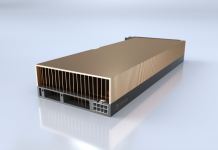The company is developing its own Ascend AI chips
US measures to limit the export of advanced chips with artificial intelligence (AI) technologies to China could open up huge opportunities for Huawei for import substitution in the domestic market, as reported by Reuters.
While Nvidia has historically been the leading AI chip supplier in China with a market share exceeding 90%, Chinese firms including Huawei are developing their versions of Nvidia’s best-selling chips, such as the A100 and H100.
Huawei’s Ascend AI chips are comparable to Nvidia’s in terms of processing power, according to analysts and some artificial intelligence companies such as China’s iFlytek.

US ban on supplies of Nvidia accelerators opens up huge opportunities for Huawei
Jiang Yifan, chief market analyst at brokerage Guotai Junan Securities, said another key limiting factor for Chinese firms is the dependence of most projects on Nvidia’s chips and software ecosystem, but that could change with U.S. restrictions.
“This US move, in my opinion, actually gives Huawei Ascend processors a huge gift,” Jiang said in a post on the social network Weibo.
Many cutting-edge AI projects are being built using CUDA, a popular programming architecture pioneered by Nvidia, which in turn has led to the creation of a huge global ecosystem capable of training highly complex AI models such as OpenAI’s GPT-4.
Huawei’s version is called CANN, and analysts say it is much more limited in terms of the artificial intelligence models it can train.
Woz Ahmed, a former chip design executive turned consultant, said that for Huawei to win Chinese customers from Nvidia, it needs to replicate the ecosystem that Nvidia has created, including supporting customers in migrating their data and models to Huawei’s platform.
Woz Ahmed believes that Huawei could take 5 to 10 years to achieve this.




